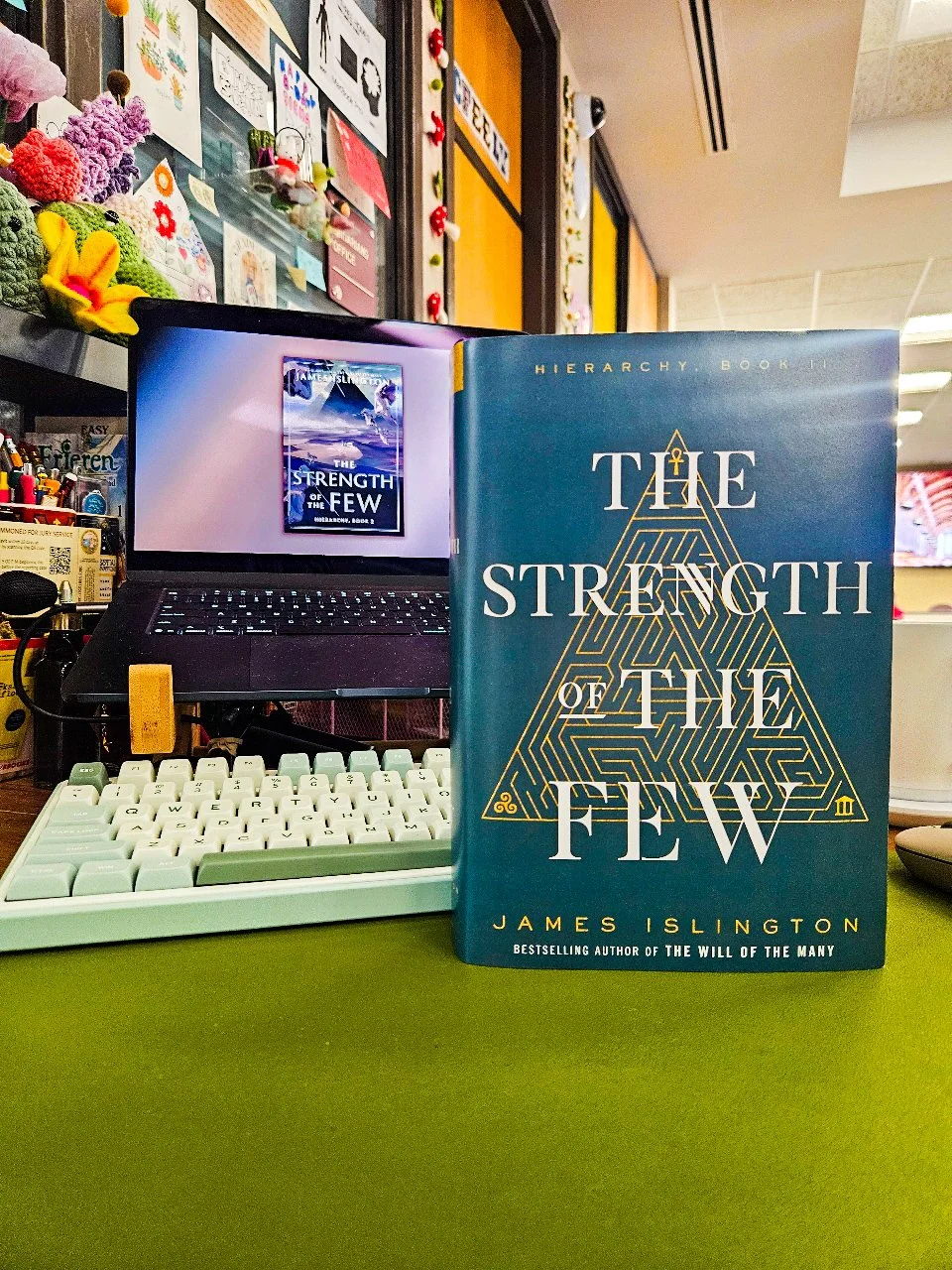The Strength of the Few
Strength of the Few Book Review by James Islington
Strength of the Few picks up right where The Will of the Many left off—at least, in theory. Vis is reeling from the events at the Academy, the empire is teetering on the edge, and all the secrets that were only hinted at in book one finally start cracking open.
Finally. You’d think we’d dive straight into the political fallout and the consequences of everything Vis discovered…except that’s not really what happens much to my dismay (and I’m assuming others’, but we’ll see).
Instead, the sequel immediately splinters into three separate narratives, all starring Vis but in completely different circumstances. There’s “main” Vis—the one we know and care about—trying to navigate the chaos in Res after the Empire’s upheaval and figure out where he stands in this increasingly unstable world.
This is the plotline that feels connected to the original story: the political machinations, the dangerous alliances, Vis’s growing understanding of his power and his past. This is also the story I care most about.
But then we also get a second storyline where Vis wakes up in a quiet, rural life on a farm (yup, you read that right), with zero memory of how he got to Luceum.
It’s slower, more introspective, and intentionally mysterious, but it constantly pauses the main arc to focus on this alternate iteration of him rebuilding a life that doesn’t feel tied to the stakes we were invested in.
And then, somehow, someway, there’s a third storyline, this one dealing with Vis waking up in a hellhole where the very air he breathes in Obiteum burns him.
Once again, we are introduced to yet another splintered path with its own tone, conflicts, and characters—each with pieces of truth that Islington clearly wants to weave together into a bigger reveal.
All three plots are meant to explore different facets of Vis, different outcomes, different versions of the world depending on choices and powers and consequences.
By the end, the narratives do begin to echo one another and slightly hint at how they fit into the larger cosmology of the series, but the sequel never actually returns to the tight, cohesive, escalating momentum of book one.
It’s more fragmented, more enigmatic, more structurally experimental—which is either going to land brilliantly for some readers or drive others (me) completely insane.
And now…my actual feelings about it.
I was so excited for this book—and I mean SO excited—and yet it let me down so badly I’m still grieving what it could have been. I hated that Islington split the book into three stories. Not mildly disliked. Hated.
It took everything I loved from book one—the political intrigue, the stakes, the worldbuilding, the character tension—and chopped it into thirds.
Every time I started to get invested in Vis’s real-world storyline (the one I waited a whole damn year to return to!), I’d suddenly get punted back to Vis-on-a-farm like some kind of emotionally confused ping-pong ball.
It wasn’t just disorienting—it actively killed the pacing. I’d finally sink into the stakes of one timeline, only to be shoved into another one that felt slower, vaguer, and less connected to the driving plot.
Yes, all three storylines were interesting individually, but that didn’t matter. I wanted the main story. The empire. The politics. The consequences. The continuation of the massive, intricate world that Islington spent hundreds and hundreds of pages establishing. Instead, the book felt fractured in a way that kept me emotionally distanced from everything.
Honestly, it all just became a slog. Not because the writing was bad (it wasn’t), and not because I suddenly don’t care about the characters (I do), but because the narrative structure undermined everything I loved. Why build this huge, compelling world only to yank the reader away from it over and over again?
I’m still annoyed. And I’m annoyed because I care. Maybe others will disagree with me. Actually, I’m sure that most people will disagree with me, but I’ll be honest and put my thoughts here anyway for those of you who weren’t completely beguiled by this novel that was essentially three different stories smashed into one.
Recommendation: If you adored The Will of the Many, please prepare yourself mentally before going into this. The storylines are interesting, but splitting the narrative drains a lot of the energy and connection that made book one so good. Still worth reading if you’re invested in the series, but…yeah. Temper expectations.
Score: 5/10





